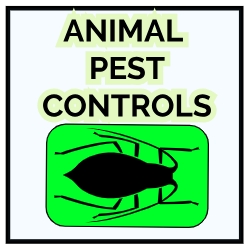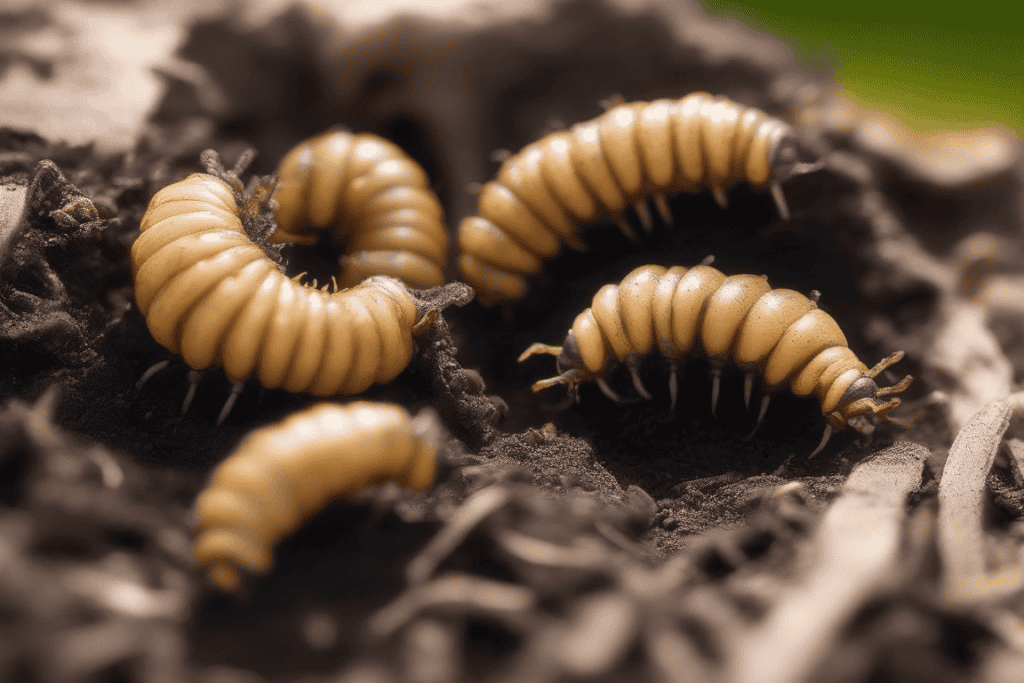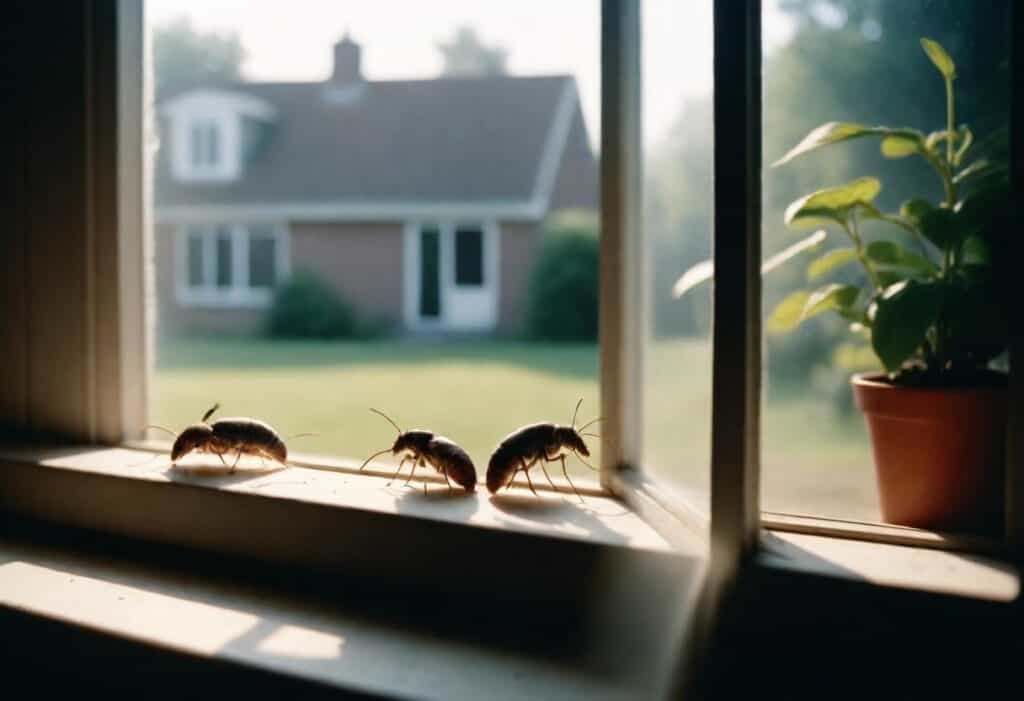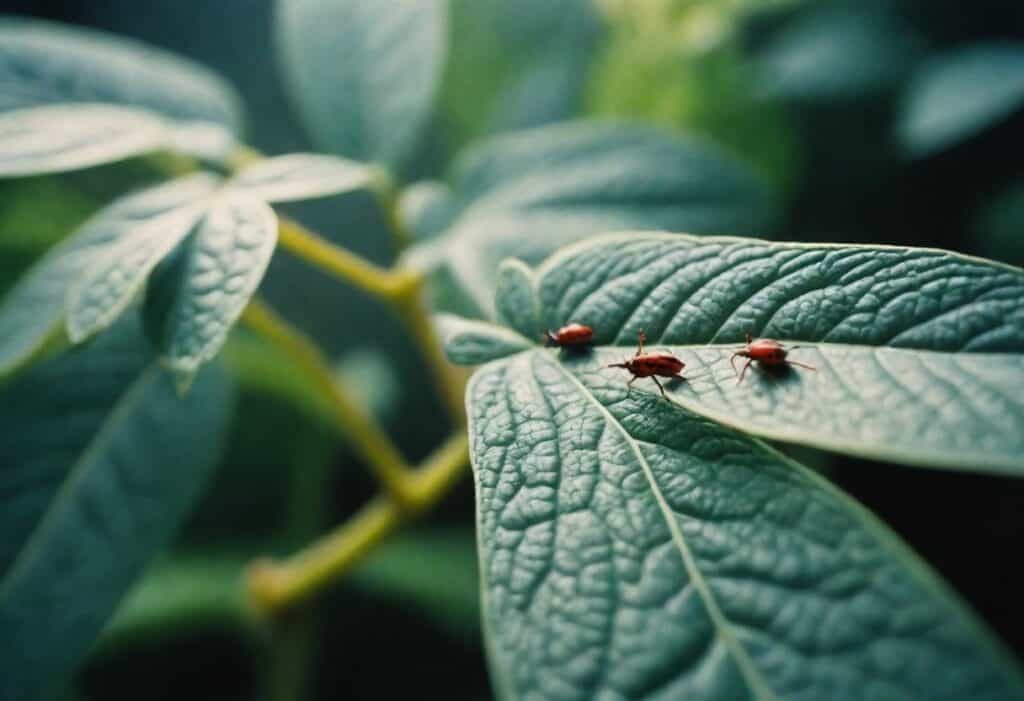Are grubs taking over the flowers and veggies in your garden?
If you are battling these pests in your garden, we will show you the perfect solution to eliminate those pesky bugs without harsh chemicals.
This guide will show you simple tips and tricks to keep grubs from ruining your garden. So what are you waiting for? Tune in now to take back control of your garden!
What are Garden Grubs?
Garden grubs are the C-shaped larvae of various beetles, such as Japanese, May, and June, and European chafers. They have a cream-colored body with a brown head and can grow up to an inch long.
Garden grubs have six legs near their head and a softer underside than their top. They live beneath the soil surface, where they feed on grass roots and cause damage to lawns and gardens.
Garden grubs can cause significant damage to grass and gardens by reducing root growth and causing plants to wilt or die.
Their feeding behavior creates drought-like symptoms in plants due to insufficient water absorption by the roots.
They also attract predators like birds, raccoons, skunks, and moles that destroy lawns during grub hunting.
What are the Natural Ways to Exterminate Garden Grubs?
1. Introduce beneficial nematodes
Beneficial nematodes are tiny, worm-like creatures that can help control garden grubs. These microscopic organisms infect and kill the larvae of various pests, including Japanese beetles, cutworms, and white grubs.
They release a bacterium that causes the larvae to stop feeding and eventually die. To use beneficial nematodes in your garden, you will need to purchase them from a reputable supplier.
Once you have them, mix them with water according to the manufacturer’s instructions and apply them directly to the soil where grubs are present.
These nematodes work best when the soil is moist but not saturated.
Using beneficial nematodes in your garden is an effective and environmentally friendly method to eliminate garden grubs without harming beneficial insects in your yard.
These helpful creatures can reduce pest populations in your garden ecosystem while promoting healthy soil ecology.
2. Treat infestation with milky spore
Milky spore is a disease that infects and kills garden grubs. This organic insecticide contains bacteria that specifically target Japanese beetle larvae, a common type of grub in lawns and gardens.
Milky spore infects the larvae with the bacteria, causing them to die within a few days. When applied to the soil, milky spores multiply and spread, providing long-term control for up to 20 years.
You can purchase it online or at your local garden center. They come in a powder form, which you must mix with water before application.
Follow the instructions strictly, as there is a specific method for applying milky spores that will ensure their effectiveness. Mix milky spores with water before applying them to your lawn or garden.
It can take some time for the bacteria to spread throughout the soil and fully control the grub population. However, once established, it can provide long-term protection against these pests.
One benefit of milky spore is that it does not harm beneficial insects or wildlife, making it an eco-friendly option for controlling grubs.
Additionally, there are no concerns about chemical residue on food crops or exposure to harmful toxins because it is a natural product.
3. Apply neem oil
Neem oil is a natural and effective pesticide that can help control garden grubs. We derive the oil from the seeds of the neem tree, native to India and other parts of Asia.
Neem oil contains azadirachtin, a compound with insecticidal properties that can target various pests like garden grubs. To use neem oil as an insecticide, mix it with water according to the instructions on the label.
Then spray the solution onto your plants and soil where you have noticed signs of grub damage. The oil will disrupt the life cycle of garden grubs, preventing them from maturing into adult beetles that can lay eggs.
In addition to its insecticidal properties, neem oil has antifungal and antibacterial properties that protect your plants from other diseases.
While neem oil is safe for humans and pets, use it cautiously and follow proper safety guidelines.
4. Exterminate with borax
Borax is a naturally occurring mineral in dry lake beds and other salt deposits. Many people have used it for centuries as a cleaning agent and insecticide.
Besides, it is an effective treatment for garden grubs. Borax will disrupt the digestive system of these pests, causing them to die.
Mix one cup of the powder with five gallons of water and apply it to the soil around your plants. It will kill any eggs or larvae in the ground and repel adult beetles from laying their eggs in the first place.
Follow all safety instructions when handling borax, including gloves and protective eyewear. Don’t apply borax during periods of heavy rain or drought conditions.
This natural solution can help protect your garden against harmful pests like grubs with proper care.
5. Mix garlic juice and water
Garlic juice and water can make an effective solution to eliminate garden grubs. Garlic contains natural insecticidal properties that can repel and kill these pests.
Mix one part garlic juice with three parts water in a spray bottle.
Shake well before use and apply directly to the soil around the affected plants.
Repeat every few days until you see a reduction in grubs. Garlic also repels common garden pests, such as aphids, mites, and mosquitoes.
This natural remedy can help eliminate grubs and prevent future infestations in your garden.
6. Aerate the soil
Aeration creates small holes throughout the ground, allowing air, water, and nutrients to penetrate deep into the roots.
Aerating your soil can help prevent grub infestations by allowing beneficial bacteria and fungi to thrive. Besides, this method allows for better water retention.
Aeration of soil can help kill grubs because it improves the health of plants. When the soil is compacted, it limits the amount of oxygen that can reach the roots of plants and grasses.
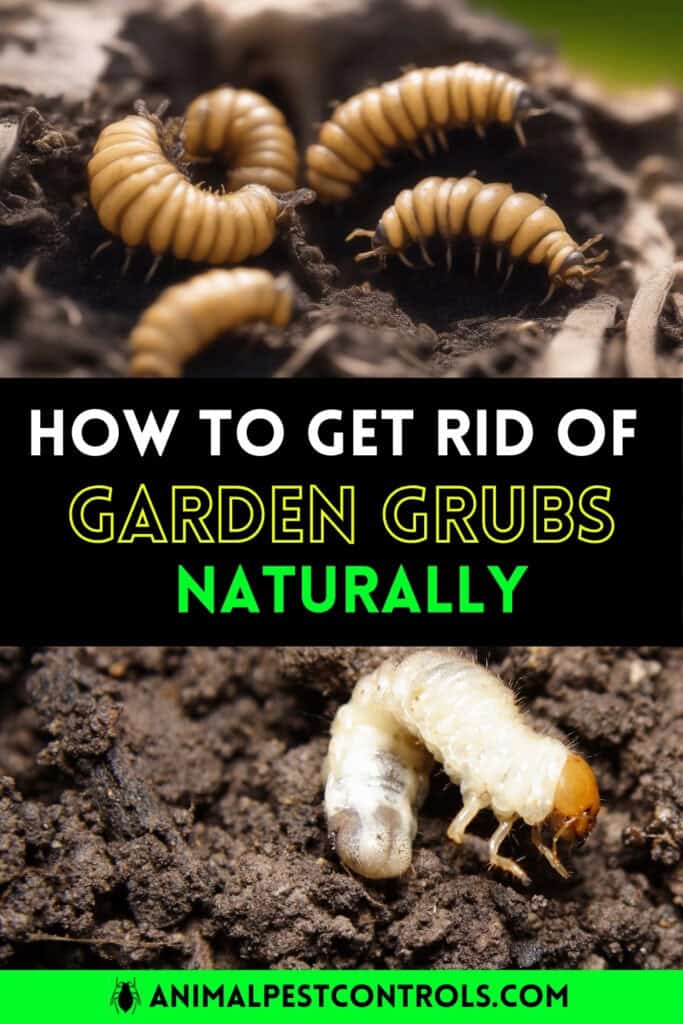
This lack of oxygen can cause stress to your plants, making them more susceptible to pest infestations like grubs. You can create small holes throughout your soil, allowing for better air and water circulation.
This increased airflow helps promote healthy root growth, strengthening plants and making them less susceptible to damage from pests.
Additionally, aeration disrupts the physical environment that grubs need to survive and thrive. Grubs prefer compacted soil because it provides a stable environment for their development as they feed on plant roots.
When you aerate your lawn or garden beds, you break up these environments by creating pockets of loose soil that are difficult for grubs to navigate.
As a result, you force them into open areas where they are more exposed to predators or will die from being unable to find food sources quickly enough in the newly aerated soil.
It would be best to aerate your soil when grubs are most active (usually late summer). This way, you can maximize its effects on reducing grub numbers over time.
7. Remove thatch buildup
Thatch is a layer of dead grass, leaves, and other organic matter accumulating on the soil over time.
While some amount of thatch protects the soil from erosion and retains moisture, too much can lead to problems like garden grubs infestation.
Garden grubs feed on grassroots and other organic matter in the ground. Excessive thatch can provide them with an ideal environment to thrive.
One way to eliminate garden grubs is to reduce thatch buildup in your lawn or garden area. You can do this by raking up excess dead plant material or using a dethatching tool to remove thick thatch layers.
Controlling thatch buildup in your lawn or garden area can help prevent garden grub infestations.
Raking up excess debris and using other tools can remove excessive thatch build-up and create an unfavorable environment for these pests to thrive.
8. Limit irrigation in your garden
Irrigation involves providing water to plants using various techniques such as sprinklers, drip systems, and flood irrigation.
It is crucial to maintain healthy plants by ensuring that they receive enough water to survive and grow. Irrigation is especially critical during dry periods when rainfall is scarce.
It can help prevent plant stress, disease, and death. However, excess irrigation can create a favorable environment for grubs to survive.
Grubs thrive in moist soil, and overwatering your plants can create an ideal environment for them to grow and multiply. Reducing the water in your garden can make it less hospitable for grubs.
Consider installing a drip irrigation system instead of sprinklers or hand watering to limit irrigation. This method will help ensure that only the roots of your plants receive water rather than saturating the entire area.
You can also add a layer of mulch to help retain moisture in the soil without overwatering it. While limiting irrigation can prevent grub infestations, it won’t necessarily eliminate them if they’re already in your garden.
If you’re dealing with an active infestation, you may need to take additional steps, such as applying beneficial nematodes or using natural insecticides like neem oil to control the pests.
Conclusion
Exterminating garden grubs is no longer a daunting task. With these simple and natural remedies, you can bid farewell to these pesky creatures and welcome a healthy garden.
So, next time you spot them in your garden, don’t panic! Try these natural methods and say goodbye to grubs for good. Remember, a healthy garden is just a few steps away.
Go ahead and give it a shot today! Happy gardening!
